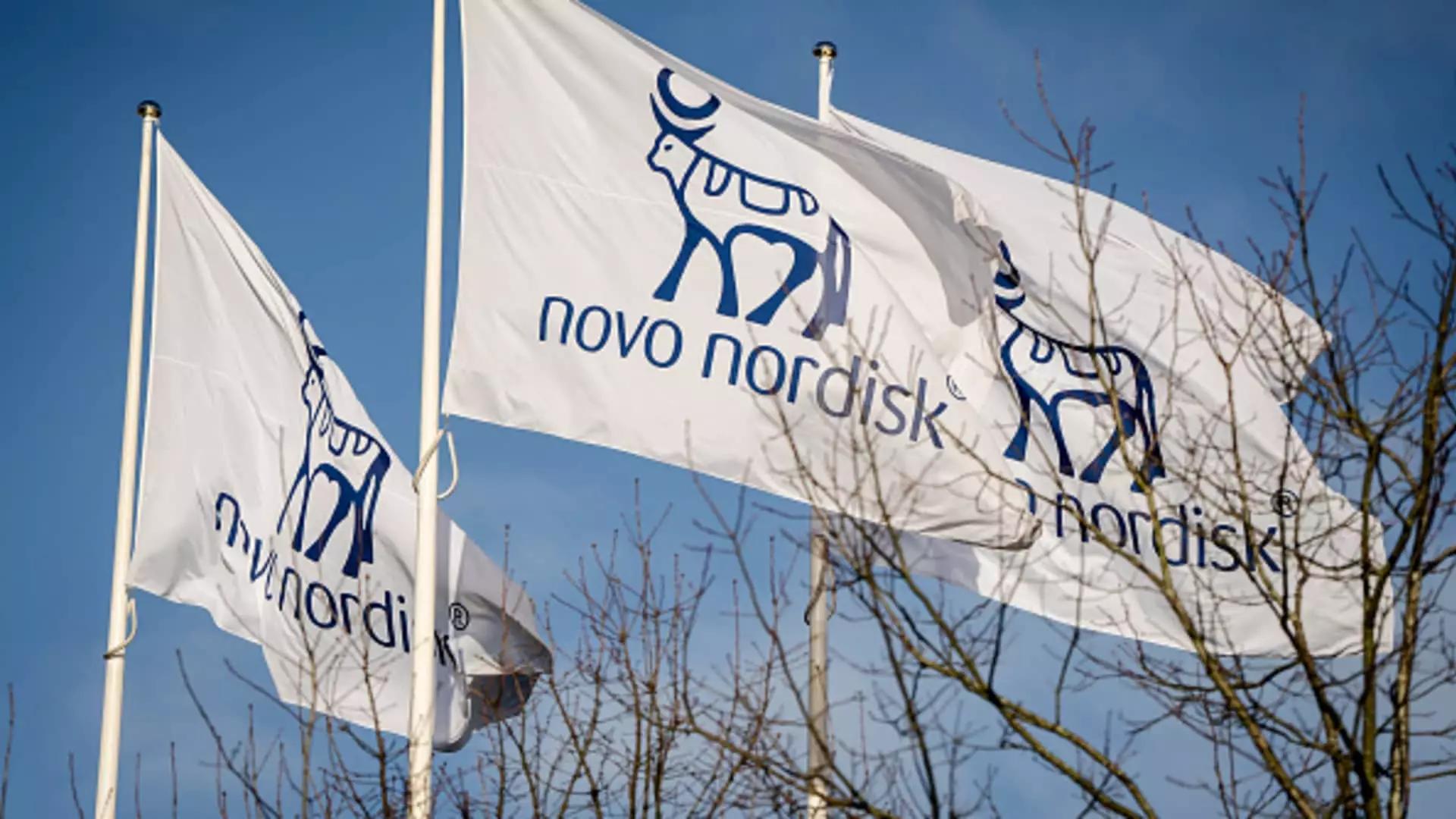On Saturday, the Danish pharmaceutical giant Novo Nordisk unveiled promising results from their latest trial for Rybelsus, a diabetes management pill that reportedly lowers the risk of cardiovascular-related death, heart attack, and stroke by 14% compared to a placebo. While it’s encouraging for those grappling with diabetes and cardiovascular complications, it raises questions about the narrative surrounding oral medications versus injectable alternatives. As the medical community scrolls through the findings shared at the American College of Cardiology’s Annual Scientific Session in Chicago, the urge to celebrate this advancement must be tempered with critical examination.
Unlike traditional insulin injections or even options like Ozempic, which requires weekly administration, Rybelsus offers a daily oral alternative that could ease the burden of treatment for needle-averse patients. However, the jubilation may overlook underlying issues that residents of the real world constantly face, such as adherence to medication regimes, side effects that accompany reliance on drugs, and the actual effectiveness compared to other existing solutions.
The Math Doesn’t Add Up
Let’s break down the statistics. The claim that Rybelsus reduces the risk of fatalities and incidents by 14% sounds attractive at first glance, but we must look deeper. With only 12% of participants on Rybelsus and 13.8% on placebo experiencing adverse cardiovascular events, representing a mere 1.8% difference in outcomes, does this truly warrant the uproar? In essence, while every percentage point can translate to lives saved or complications prevented, the nuances in clinical responses demand more scrutiny than a simple headline can justify.
It is essential to consider the broader pharmaceutical landscape. Many other medications claim robust results in cardiovascular improvements for similar patient demographics. In fact, the structured comparisons with other GLP-1 drugs, which mimic gut hormones to manage appetite and blood sugar levels—a class of drugs already known for their benefits—may also slant the emphasis in Rybelsus’s favor. Are we merely reinforcing a narrative that propels a corporate agenda, or is this truly groundbreaking science?
A Pill or Just Palatable Poison?
Alethic truths about the patient experience can often be obscured by the fancy brochures and clinical jargon that surround pharmaceutical advances. The common side effects associated with Rybelsus—gastrointestinal distress like nausea, diarrhea, and constipation—are not exactly side effects one would disregard lightly. Although these adverse effects might not lead a large number of patients to discontinue use, they still represent a significant hurdle in daily life, especially for those juggling already-complicated health conditions.
Though Novo Nordisk presents Rybelsus as a game changer, it conveniently glosses over the trials that don’t just involve clinical benefits but also bear witness to patient suffering. Simply providing an “easier” option for those afraid of needles does not erase the reality that medication often comes with a hidden cost—one that can severely impair quality of life.
Targeting the Market: A Clever Marketing Strategy?
Additionally, we cannot ignore the broader implications of this latest announcement in terms of market strategy. With the advent of self-administered GLP-1s targeting diabetes and weight loss, we must deliberate whether the real intention here is to provoke a rush towards profitability rather than patient care. The involvement of an increasing number of players, such as Eli Lilly, in developing similar oral medications implies a burgeoning competition driven, perhaps, more by market share than by revolutionary therapeutic breakthroughs.
Novo Nordisk has already sought to clarify Rybelsus’s indications in the United States and Europe to encompass serious cardiovascular risk mitigation, a strategic move that could bolster its position in an increasingly crowded field. But at the core of these maneuvers lies an unsettling thought: the commodification of patient health, whereby profit margins sometimes eclipse genuine well-being.
The Patient-Pharmaceutical Relationship: A Balancing Act
Lastly, these developments compel us to reflect critically on the patient-pharmaceutical relationship. From a liberal standpoint, it’s vital to advocate for healthcare approaches driven by science and unbiased data, not just the persuasive business models shaped by the industry. Patients should have access to diverse treatment options tailored to meet their needs—be it oral medications or injections—without the underlying current of commercialization skewing their choices.
Rybelsus exists within this framework as both a beacon of hope and a cautionary tale. The advancement it symbolizes for diabetic care must be weighed against the realities of patient experiences, market forces, and ethical considerations. As we examine these developments, may we approach them with a discerning eye.

